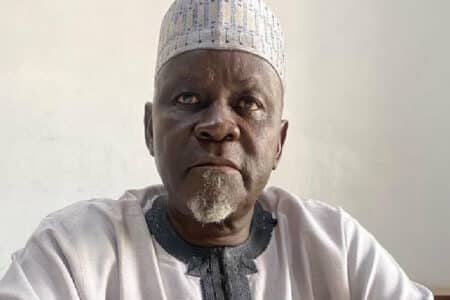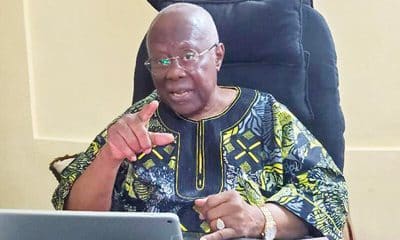Nigeria News
Suspended Adamawa REC, Ari Allegedly Collapses, Refuses To Appear In Court For Trial

A High Court sitting in Adamawa State could not proceed with the trial of the suspended State Resident Electoral Commissioner (REC) of the Independent National Electoral Commission (INEC), Hudu Ari after he allegedly collapsed and was rushed to the hospital.
A letter of illness was presented to the court presided by Hon. Justice Benjamin M. Lawan.
According to the letter sent to the court by the Attorney General of the Federation (AGF), the former REC failed to appear before the court due to ill health.
A Senior Advocate of Nigeria, Suleiman Usman told the court that he had made necessary arrangements to produce Ari in court but failed due to his ill health.
He said Ari had returned to Nigeria from Niger Republic and is currently staying in Bauchi State but could not appear in court.
Usman explained that his office had filed a medical report obtained from Abubakar Tafawa Balewa University Teaching Hospital (ATBUTH) as evidence to prove he was truly having health challenges.
The lawyer also tendered a letter written by the AGF, directing the court to temporarily stay the prosecution of Ari pending the determination of the appeal filed before the Court of Appeal Abuja Division by APC Governorship Candidate, Aishatu Binani.
During the court sitting, Counsel to the prosecution, Rotimi Jacobs said that the prosecution was informed that the defendant had collapsed while preparing to appear in court for trial.
He said the defendant collapsed on the 15th December, 2023 and was rushed to Abubakar Tafawa Balewa University Teaching Hospital (ATBUTH) for medical attention.
He also noted that Ari has been writing letters and filing so many motions to stall his trial.
Rotimi therefore advised the court to issue a warrant of arrest against the defendant as the only way to get him to appear before the court.
The court didn’t oblige the request contained in the AGF’s letter, and warned that the defendant is pushing the court to “the wall.”












